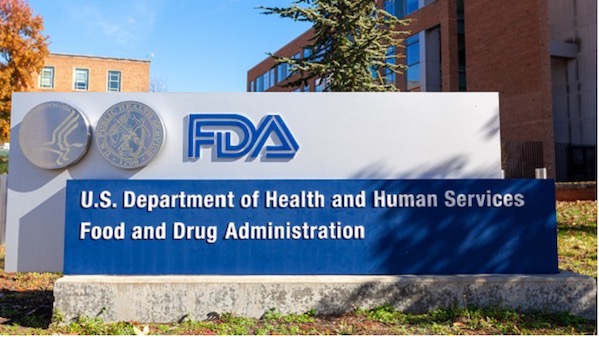FDA Questions Efficacy of Alnylam’s Drug in ATTR-CM Ahead of Adcomm Meeting
September 14, 2023
Source: drugdu
 286
286
By Connor Lynch
 Pictured: FDA Sign in front of building with blue sky background/Adobe Stock, Grandbrothers
Pictured: FDA Sign in front of building with blue sky background/Adobe Stock, Grandbrothers
Alnylam Pharmaceuticals’ push for patisiran to be expanded to a much larger pool of patients for the treatment of the cardiomyopathy of wild-type or hereditary transthyretin-mediated amyloidosis has hit a significant hurdle.
In a briefing document released ahead of the Sept. 13 meeting of the FDA’s Cardiovascular and Renal Drugs Advisory Committee, the agency called into question the efficacy of the drug in treating that pool of patients.
The company has been seeking approval for its drug patisiran, sold under the brand name Onpattro, to be used to treat patients with cardiomyopathy induced by transthyretin amyloidosis (ATTR-CM). The disease typically affects the hearts and tendons of elderly people, causing an accumulation of proteins which can lead to severe cardiomyopathy.
The APOLLO-B study was looking at one key primary efficacy endpoint and one key secondary endpoint to determine the usefulness of patisiran in treating this condition: how far patients could walk in six minutes (6MWT) and a self-reported patient-reported outcome questionnaire covering 23 factors affecting the patients’ perceptions of their health status.
While the study hit both key endpoints, with the results being “statistically significant,” the FDA nevertheless noted in its briefing document that “the effects of patisiran compared to placebo on both endpoints were small, of questionable clinical meaningfulness, and may not be detectable by patients.” In addition, the regulator said “the effects of patisiran compared to placebo on 6MWT appeared confined to patients not on background therapy with tafamidis.”
Apart from confirming that the trial was conducted properly and the safety profile was properly characterized, the FDA’s review team is asking the advisory committee to weigh in on whether the drug offers a “clinically meaningful treatment of patisiran in patients,” and particularly if there’s a patient population “for which the results of APOLLO-B trial support use of patisiran as monotherapy or in combination with tafamidis,” to treat ATTR-CM.
That represents a potential opportunity for Alnylam to challenge Pfizer’s market dominance with tafamidis, sold under the brand names Vyndaqel and Vyndamax, in treating ATTR-CM. The two drugs together generated $2.4 billion in revenue last year. The FDA is expected to render a verdict on Alnylam’s application by October 8.
Patisiran was already approved by the FDA in 2018 for the treatment of hereditary ATTR amyloidosis polyneuropathy, which made it the first-ever RNA interference therapeutic approved by the regulator.
Nevertheless, vutrisiran—sold under the brand name Amvuttra—still represents the company’s most lucrative product. In its second-quarter 2023 financial update, net revenues for the drug were $132 million, versus $91 million for Onpattro.
Read more on
- The first subject has been dosed in the Phase I clinical trial of Yuandong Bio’s EP-0210 monoclonal antibody injection. February 10, 2026
- Clinical trial of recombinant herpes zoster ZFA01 adjuvant vaccine (CHO cells) approved February 10, 2026
- Heyu Pharmaceuticals’ FGFR4 inhibitor ipagoglottinib has received Fast Track designation from the FDA for the treatment of advanced HCC patients with FGF19 overexpression who have been treated with ICIs and mTKIs. February 10, 2026
- Sanofi’s “Rilzabrutinib” has been recognized as a Breakthrough Therapy in the United States and an Orphan Drug in Japan, and has applied for marketing approval in China. February 10, 2026
- Domestically developed blockbuster ADC approved for new indication February 10, 2026
your submission has already been received.
OK
Subscribe
Please enter a valid Email address!
Submit
The most relevant industry news & insight will be sent to you every two weeks.



